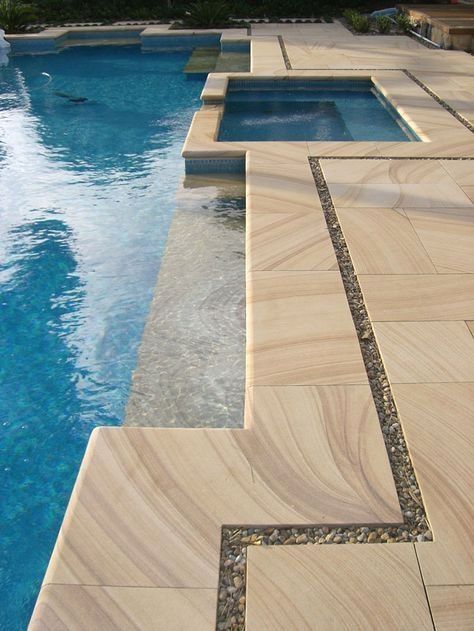Given that travertine is extremely water absorbent this presents a particular problem in colder climates where freezing occurs and the water trapped in the stone expands.
Travertine salt water pool.
Travertine is an ideal surface to consider for outdoor landscaping and as a floor tile for your pool deck because it is so resistant to temperature extremes.
In most pool areas travertine is exposed to water through the pool itself and natural weather events like rain sleet or snow.
Travertine can safely be used around a salt water pool as long as the appropriate measures are taken to protect it.
An impregnating sealer gets down into the nooks and crannies of the travertine pavers to keep the salt water out.
This maintenance and care will help to preserve the longevity of the patio.
They are impervious to cracking water and moisture resistant but if you are installing travertine next to a salt water pool you should take care to protect the stone with a penetrating commercial sealant.
Although we feel the beauty of travertine around our swimming pools is unsurpassed these recent discoveries have motivated us to recommend additional maintenance for this surface when installed in conjunction with a salt water pool.
It is recommended to seal the travertine with a water repellent impregnating sealer to prolong the life of the patio.
Salt water pools contain fewer chemicals than those that use chlorine or other harsh substances to filter and clean the water.
Travertine is able to hold its own around a salt water pool as long as the appropriate measures are taken to protect it.
Salt water and sealer.
A high quality water repellant impregnating sealer should be used on the travertine giving reasonable protection for 5 10 years.
Travertine is very tolerant of temperature extremes but we recommend choosing a light coloured tile for around pools so it stays cool it the hot summer months.










